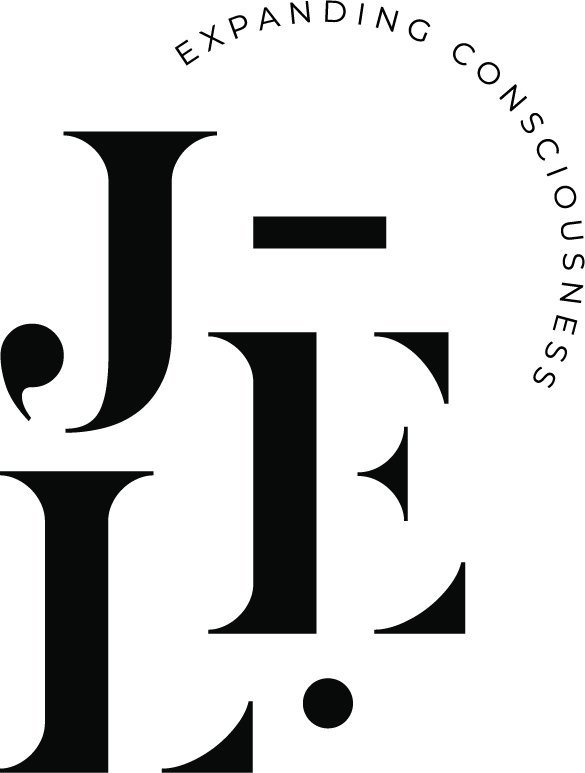Module Seven Part 3 - Discover the patterns you use to survive
Objectives:
learn how survival traits shape your behaviour
Explore your four cornerstone memories
Find a buddy to work with you as a TRUSTWORTHY sounding board
Tell a short story of your four memories to a buddy to explore each survival trait
find your keywords.
be mindful of your boundaries, learn to say no in an acceptable manner
learn to use the court of divine justice to resolve resentment and anger left over from your past
what are Survival Traits
Survival traits are behaviours you use habitually in life to survive and/or win, especially during stressful situations.
These survival traits are established during early childhood and this behaviour is generally hardwired into your brain as if it is the ONLY way you can behave in a given situation. When in reality this childish behaviour is no longer helpful and can result in ruthless self-sabotage.
This section is designed to help you explore your unconscious survival traits, name them and become more aware of them, so that you can choose to use more helpful ways of behaving, if and when required.
what are cornerstone memories
There are usually four events that teach you how to survive in the world, three of these survival traits are established by the time you are a teenager. The forth occurs when something major changes in your life usually as an adult, when your parents are no longer responsible for you. These are your cornerstone memories.
These four events are etched in your unconscious mind, they fuel your desire to behave in certain ways that seemingly keep you safe; they become more and more entrenched as you get older.
It’s fascinating to understand how, four apparently irrelevant memories, can reveal why you behave the way you do, even when it’s a painful memory.
In stressful situations, you can feel as if you have little to no choice to act differently. AND if you are pushed to act differently, you feel way out of your comfort zone, as if your very survival is threatened.
How to discover your cornerstone memories
These four questions will help you discover your cornerstone memories along with the suggestion of the approximate age these events may have occurred.
What is the earliest event you can remember clearly in your childhood when ‘something happened’ ?
age - from birth to approximately 4 years old.
What is the earliest event you can remember clearly in your childhood when ‘something went wrong’ ?
age - approximately up to 6 years old.
What is the earliest event you can remember clearly when ‘you felt alone’ whether you were actually left alone or not?
age - childhood to teenage years .
What is the earliest event you can remember clearly when
‘something major changed’ a life changing event?
age - teenage to mid adult.
How to check if it’s really a cornerstone memory
When asked to remember events, it’s easier to bring to mind stories often told to you by adults, but you don’t really remember them as your own experiences.
Cornerstone memories are the ones that you actually remember living through. Often when these memories are brought to mind, extra details can surface, such as the colour and the smell of something, or the pattern of a wallpaper. These details are the clues we are looking for, as they signify that this event is significant and important enough to remember.
Survival traits continue to repeat if and when similar scenarios to the original event happen during your life. This is how you know that they are truly ‘Cornerstone Memories’.
two perspectives are better than one
During discussions with your buddy, you can uncover your survival traits blended into the story of what happened. When you see how the patterns have repeated over and over during your life, you can be confident that you have found the correct collection of cornerstone memories.
The ideas will make more sense as you progress and listen to the example audios given in the next section.
Have a pen and paper to hand to make bullet points of your memories as you answer the questions designed to help you gain the relevance of each memory. Tell your memories like short stories that include answers to the questions below.
questions that help you to tell your story
a. what happened?
b. how old were you?
c. what did you do then?
d. how did you feel about that?
e. what happened next?
f. has this scenario repeated through your life?
g. what word or short phrase describes your ongoing behaviour after that event
So many things happen during our lives, we can't possibly remember everything. So the question remains, why then, do some seemingly trivial memories come to mind, while others are long forgotten?
Our brains are smart, we only need to remember things that are important for our survival, or our perceived survival. There’s no point to take up valuable memory capacity with meaningless events.
The events that we can recall are our cornerstone memories that rule our lives and keep us stuck in repetitive behaviours that we subconsciously believe keep us alive.
It doesn’t even matter what happened, it’s what you think happened that matters!
Are we all stuck in a habit hole?
Whatever you did in reaction to a clear childhood memory is stored as a subconscious survival habit; you don’t even have to make any effort to use that behaviour over and over; you act so quickly it takes no thought to keep doing it. It’s become an unconscious habit.
This is a good thing in terms of saving energy, it’s much quicker and easier to do something you have practiced. However, it’s not such a good thing in terms of being stuck with unhelpful childish behaviour that can automatically trigger when you feel stressed. Changing it will take effort, but when there is a good enough reason you get a glimpse that anything is possible. Find your reason!
“If we want things to stay as they are, things will have to change”
keywords that name and uncover unconscious behaviour
Four key words
Keywords name the cornerstone behaviours that rule your life. Once named they can be seen more clearly.
They vary widely as you will hear in the examples offered in the audios below. These audios are real life examples that have been adjusted slightly to respect the privacy of the people concerned. They are shared to help you learn how to discover and clarify your own keywords.
To help you describe your own traits, there are some examples of keywords below that came to light from people who have already done the course. Exposing traits diminish their power to control us unconsciously.
‘people pleaser’
‘independent’
‘secretive’
‘informative’
‘passive’
‘cute’
‘determined’
‘anxious’
‘responsible’
‘tolerant’
When you think you have your keywords ask people who know you quite well, “ Do you think I am (insert your trial word)”
If you get several that say no, think again, if you get most that say yes, you’ve probably nailed it.
The four examples in the audio’s below explain how to extract keywords as you share your memories with your buddy. The more feedback you get, the more effective the learning can be. Remember two perspectives are better than one.
setting healthy boundaries is investing in your future
In life, there are compelling reasons to establish healthy boundaries, and deep down, we all know their importance. Many of us have faced situations where we felt helpless against someone bigger or stronger, like encountering a bully. At times, we've allowed ourselves to be treated unfairly simply for the sake of avoiding conflict, leading to resentment later on. This can become an ingrained survival trait.
Saying "no" can be challenging, especially when faced with high expectations from others. However, practicing the art of saying "no" is a powerful way to make progress. Sometimes, all we need is the permission to say "no" and the practice to find the right words to express our needs effectively.
So, grant yourself the permission to say "no" when necessary. Remember, it's healthy and normal to do so. Additionally, saying "no" empathetically can lessen any potential sting, making it easier for both you and the other person involved. Take the time to explore and find a phrase that feels authentic to you.
Here's an example of how it might sound:
"I would genuinely love to say 'yes,' but I want to be honest with you. It might not be easy for you to hear me say 'no,' and I hope you won't be too disappointed that I'm unable to do it at this time."
By learning to say "no" upfront when asked something, you'll find it becomes easier. The longer you wait, the more difficult it may be to express your boundaries confidently.
The more magnetic you become the stronger your boundary must be
For the times when you couldn’t keep your boundary line in place, you can let go of subconscious primal anger using the technique below. Learn to do this now and your future self will thank you.
this technique satisfies your primal, often unconscious, need
for retaliation or retribution
Divine Justice is a valuable visualisation technique that will help you to heal anxiety driven stress, caused by your feelings for people who have done you wrong. It can help to heal even the hurt you’ve tolerated when your boundary was trampled over. It helps you achieve inner peace.
Bring to mind someone who caused you harm in the past and decide if you need to summon them to the Court of Divine Justice. Decide if you still feel upset or angry with them, and even if you think you are over it, you can still benefit greatly if you take part in this exercise.
Start by making a list of those people you would like to feel some divine justice from. Remember no justice, no inner peace. Lets get your subconscious anger out as well.
Primal rage is a real phenomena; animals get it over quickly by having a spat to sort it out, and then move on, but civilised people are taught not to do that. So what shall we do?
Follow the ‘Court Of Divine Justice’ instruction audio below; you will learn how to summons a person who has wronged you to appear in your ethereal court. Make your accusation, listen to whether they plead guilty or not guilty and take into account any defence they present to you. You can either decide on a verdict, announce your judgement and either carry out the sentence, or if you prefer you can adjourn to think it through. You can also choose to have your security in your court carry out your sentence for you when you reach your verdict. However, it can sometimes feel very liberating to shout at or even be physical with a person who mistreated you in the safety of this courtroom. Your primal brain needs some kind of retribution, even subconsciously, however spiritual you may feel now.
This recording was taken during an advanced class and lasts approx 5 minutes. Listen first and then play it again following along to the end. It’s a useful tool to learn and has an amazingly satisfying effect when used. Sit quietly for about 5 mins when it ends to contemplate how you feel. You may feel like a weight was lifted from your shoulders. Repeating the exercise three times over several days will give you a fuller effect.
If it feels like you are manipulating someone as you do this, this is a sign that you feel guilty judging a situation or a person. This is very normal because we are told it’s not spiritual to judge. However, it’s not healthy to go through life without discernment. It may be easier to stomach if you say to yourself, you ar not judging, you are discerning.












